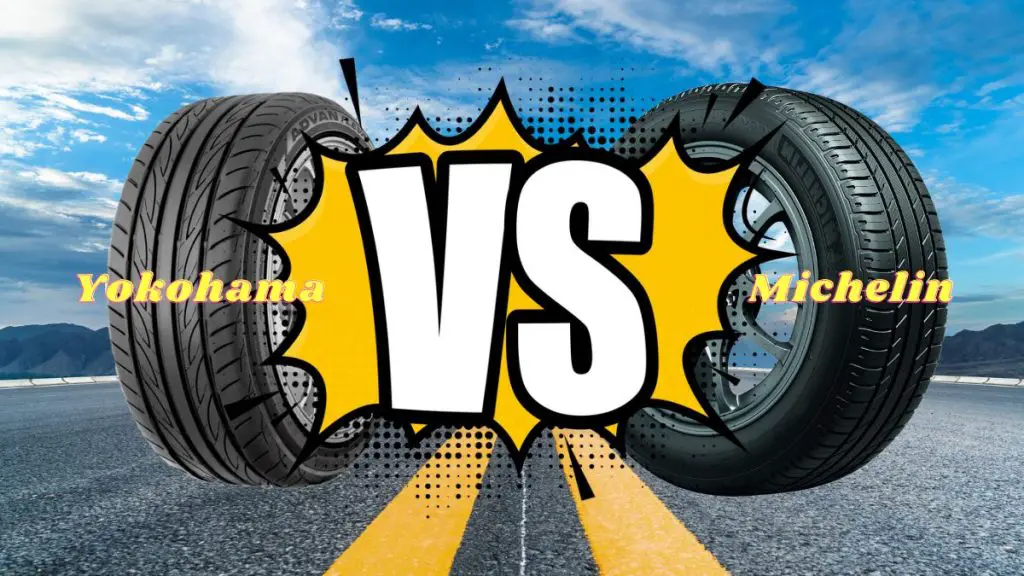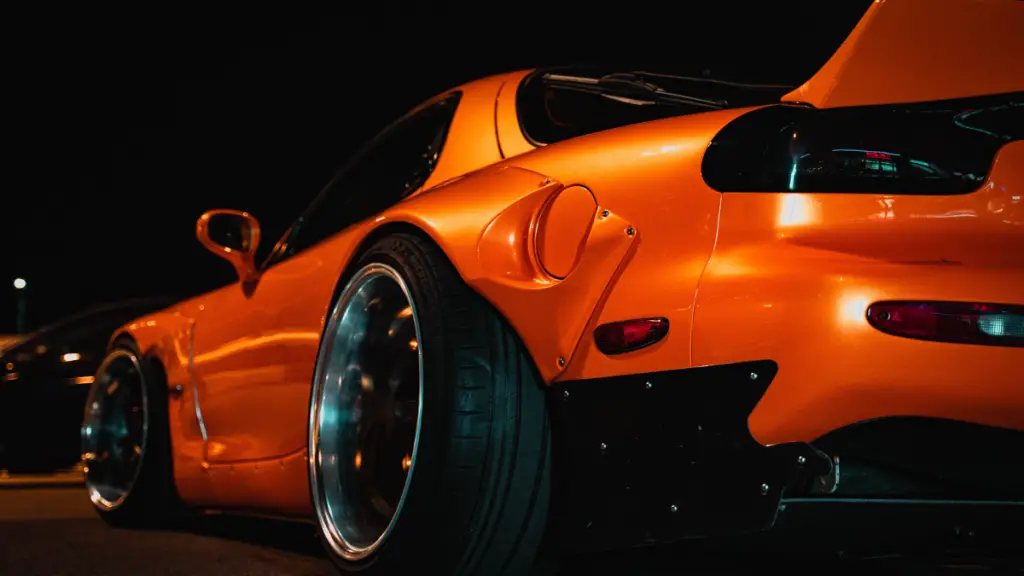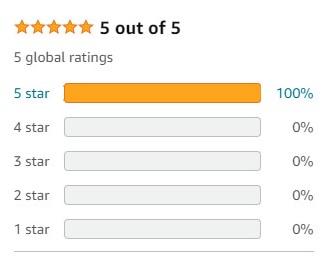
Yokohama VS Michelin tires to find out which is the best fit for your vehicle. To make a wise choice, research features, performance rankings, and more.
The two most well-known now available brand names on the market when it comes to choosing the best tires for your car are Yokohama and Michelin. Both businesses sell high-performance tires that prioritize a safe, secure ride. Which is better, though? This post will contrast Yokohama and Michelin tires so that you can choose the best set for your vehicle. Yokohama VS Michelin: Differences Step by Step
Yokohama Tires VS Michelin: Differences Step By Step
Key Features of Yokohama Tires
Superior Grip: For a variety of driving conditions, Yokohama Tires offer outstanding grip and traction. The tire treads are made to maximize surface contact, improving traction whether it’s wet, ice, or dry.
Long-Lasting: Rubber compositions used in the production of Yokohama tires are strong and long-lasting compared to those used by rival brands. Plus, they come with a manufacturer’s warranty to back up their long-lasting performance.
Quiet Ride: With Yokohama Tires you can enjoy a quieter ride due to the advanced construction and noise dampening technology used in each tire. This makes them perfect for quiet drives on highways or city streets alike.
All Weather Performance: Yokohama tires are going to work at their best performance whether you’re driving in the summer or the winter condition. You can rely on consistent performance no matter the weather because they are built for all kinds of road conditions and climates.
Increased Safety: You may drive with confidence knowing that your car is shielded from potential hazards by Yokohama Tires. The special design of the treads provides increased safety while braking and cornering, allowing you to drive with added peace of mind.
Key Features of Michelin Tires
High-Level Performance: Exceptional in performance, Michelin tires are designed to provide improved handling and traction in both dry and wet conditions. New tread technology provides long-lasting tread life and reduces noise for a quiet, pleasant drive.
Peace of Mind: With Michelin tires, you can be sure that your car gets the protection because body of this tires function at its optimum level. These high-performance tires are engineered with innovative technology for superior braking power and handling on the road.
Durability: Enhance the longevity of your vehicle with Michelin Tires. You won’t have to worry about replacing tires at any time you want. This type of tires designed maximum durability for the wear and tear of regular driving.
Fuel Efficiency: Save money on gas with Michelin Tires! They offer a quieter ride than other tire brands and contribute to a decrease in fuel consumption. For added piece of mind, these tires also with a manufacturer’s warranty.
Safety: With Michelin Tires, drive safely always! You may drive with confidence knowing that your automobile is fitted with dependable, high-quality rubber because of their sophisticated tread design, which helps deliver improved traction in dry or wet situations.
Read More: Toyo Open Country at3 vs bfgoodrich ko2
Performance Comparison on Dry Road
Both Yokohama and Michelin tires perform admirably when used to travel on dry roads. The two tire companies do differ in a few significant ways, though. To begin with, Michelin tires perform better than Yokohama tires in terms of handling on dry roads. This is explained by the usage of cutting-edge rubber compounds in Michelin’s tire manufacturing.
Another area where Michelin tires excel is in offering a smooth, quiet ride over dry pavement. This is partly attributable to the company’s adoption of cutting-edge tread designs that increase traction while reducing road noise.
On the other hand, Yokohama tires are renowned for their exceptional silica-infused rubber formulations, which contribute to their exceptional grip levels on dry surfaces. These tires are a great option for high-performance automobiles because they give excellent driving stability plus braking power on dry roads.
Overall, both Yokohama and Michelin offer top-tier performance when driving on dry roads. The decision ultimately comes down to personal preference and what specific qualities you prioritize in your tire selection.
Performance Comparison on wet road
When comparing tire performance on slippery terrain, Yokohama and Michelin are two well-known tire companies that frequently compete against one another. Comparing the two brands head to head reveals both their benefits and shortcomings.
Yokohama tires are known for providing excellent wet traction due to their advanced tread designs and compound technology. The brand makes use of unique rubber compounds that ensure maximum grip in rainy or wet conditions. On the other hand, Michelin is renowned for its hydroplaning resistance technology which helps keep the vehicle stable even in heavy rain. This is achieved through special sipes (tiny cuts) that disperse water from under the tire.
Performance Comparison on Winter
Yokohama offers several snow and ice tires that provide excellent traction on slippery surfaces. The company’s flagship product, the IceGuard iG52c, has been praised for its stability on icy roads and its ability to maintain grip even in extreme temperatures. Similarly, Michelin also has a diverse portfolio of winter tires, with products like the X-Ice Xi3 and Pilot Alpin PA4 being some of the most sought-after options by drivers.
Read More: Goodyear Assurance VS Michelin Defender-Which Tire Better?
Warranty Comparison
When it comes to the warranty of Yokohama tires versus Michelin tires, there are some key differences worth noting. While both brands offer warranties on their products, the length and coverage can vary significantly.
Yokohama provides a standard limited warranty that lasts up to five years from the date of purchase or until the tire reaches its wear limit & protects against manufacturing and material defects. However, this warranty only covers the original buyer of the tire and does not cover abuse or damage brought on by hazards on the road.
Whereas Michelin provides a limited guarantee that lasts six years from the date of purchase or up to the tire’s wear limit, whichever comes first. Additionally, Michelin offers a mileage-based limited treadwear warranty on select models that covers up to 80,000 miles. However, like Yokohama’s warranty, Michelin’s coverage is also subject to certain restrictions and exclusions such as damage caused by road hazards or improper use. Before making a purchase, it is crucial for buyers to carefully research and focus the individual warranty information for each brand.
Price Comparison
There are a few variables to consider when comparing the costs of Michelin vs Yokohama tires. It’s crucial to first take into account the precise tire models you’re evaluating, as pricing can differ greatly based on this aspect. But generally speaking, Yokohama tires are a bit less expensive than Michelin tires.
The fact that Michelin is renowned for its high-end and luxury choices, while Yokohama is more likely to focus on mid-range and affordable options for its user, is one explanation for this. Likewise, Michelin frequently invests significant investments in development and research, that may increase the selling price of their goods.
Durability Comparison
Durability is a vital feature to take into account while deciding between Yokohama tires and Michelin tires. While both brands offer high-quality items with remarkable durability, here are some architectural deviations between the two that could have a bearing on the way products operate over the years.
Yokohama tires were a great option for focused on results cars since they have excellent grip and agility. These tires are made using advanced rubber compounds that provide superior traction on both wet and dry roads. Additionally, they have a reinforced sidewall design that ensures maximum stability during cornering and enhanced resistance to punctures and damages.
On the other hand, Michelin tires are renowned for their best capabilities. They use a unique tread pattern that allows for even wear over time while reducing road noise significantly. Furthermore, Michelin has developed several innovative technologies such as the EverGrip Technology which provides outstanding wet grip even when worn out. The result is a tire that offers consistent performance throughout its life span.
Customer Review
When it comes to choosing between Yokohama tires and Michelin, customers have varying opinions. One customer who recently purchased a set of Yokohama tires praised the brand for its excellent handling and impressive grip on wet surfaces. The reviewer also mentioned that the tires were relatively quiet, which is a plus for those who value a peaceful ride.
On the other hand, another customer who compared Michelin and Yokohama tires noted that while both brands are top-notch in terms of quality, they preferred Michelin for its longer tread life. They also mentioned that Michelin was generally more expensive than Yokohama but felt that the added cost was worth it in terms of longevity.
Customer Rating
Both tire brands, Yokohama tire and Michelin tire, have been found on Amazon with 5 stars out of 5, but in some models we found ratings below 5 stars.
Pros and Cons of Yokohama tires
Pros:
- 1. Yokohama tires are made from top-quality rubber, offering durability and reliable performance.
- 2. They have a wide selection of tire models for different road conditions, ensuring the best grip on any terrain.
- 3. Yokohama tires are designed to resist wear and tear more effectively compared to other brands.
- 4. The tread patterns of Yokohama tires provide superior traction and control in wet weather conditions.
- 5. Yokohama tires come with a limited warranty that provides peace of mind against manufacturer’s defects.
Cons:
- 1. Yokohama tires can be expensive compared to other tire brands in the market.
- 2. Limited availability in some areas can make it challenging to find replacement Yokohama tires when needed.
- 3. Some Yokohama tires may produce increased levels of road noise depending on the model selected.
- 4. Some customers have reported issues with tread wear on certain Yokohama tires.
Pros and Cons of Michelin
Pros:
- 1. Michelin tires provide superior grip and handling.
- 2. They are constructed of strong supplies with an extended lifespan.
- 3. They are designed to be fuel-efficient, which reduces long-term travel costs.
- 4. They offer great traction, even on icy or rainy surfaces.
Cons:
- 1. Michelin tires can be more expensive than those from other manufacturers.
- 2. Some models might not last as long as they should because of poor quality control.
- 3. The higher grip, handling, and stronger sidewalls of Michelin tires could cause the car to wear out prematurely.
- 4. The aggressive tread pattern of some models may create excessive noise when driving at higher speeds.
Which Tire is the Best?
When you choosing the best tire, two of the most popular brands include Yokohama & Michelin. Both tire brands offer high-quality tires for various types of vehicles.
Conclusion
Finally, your personal demands and preferences as a driver will ultimately determine whether you choose Yokohama tires or Michelin tires. While Michelin tires are renowned for their long tread lives and excellent wet traction, Yokohama tires are more reasonably priced and concentrate on performance handling. Finally, both brands offer high-end tire alternatives that may ensure a dependable and secure driving experience. It’s important to consider factors like the weather, driving habits, vehicle type, and budget when deciding between Yokohama and Michelin tires.
The Next Road (thenextroad.com) is an affiliate of the Amazon Services LLC Associates Program, so you can access the Amazon marketplace when on this domain. We will earn a commission from your qualified purchases.


